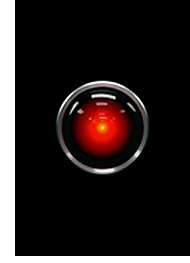| Sun | Mon | Tue | Wed | Thu | Fri | Sat |
|---|---|---|---|---|---|---|
| 1 | 2 | 3 | 4 | 5 | ||
| 6 | 7 | 8 | 9 | 10 | 11 | 12 |
| 13 | 14 | 15 | 16 | 17 | 18 | 19 |
| 20 | 21 | 22 | 23 | 24 | 25 | 26 |
| 27 | 28 | 29 | 30 | 31 |
CATEGORIES
RECENT ENTRIES
BLOG ROLL
Teach a computer to hypothesize…
Researcher Andrey Rzhetsky programs machines to become better scientists.
 Andrey Rzhetsky, professor in the Department of Human Genetics and a senior fellow at the Computation Institute, designs computer programs that are voracious readers. One of them analyzed 368,000 scientific articles and 8 million abstracts to form new hypotheses about brain malformations in mice and humans, a feat worthy of the greatest fictional computers—HAL 9000 without the malice.
Andrey Rzhetsky, professor in the Department of Human Genetics and a senior fellow at the Computation Institute, designs computer programs that are voracious readers. One of them analyzed 368,000 scientific articles and 8 million abstracts to form new hypotheses about brain malformations in mice and humans, a feat worthy of the greatest fictional computers—HAL 9000 without the malice.
In an interview with Wired, Rzhetsky lays out the case for getting machines involved in scientific research. Although a 17th-century English scientist might have read all there was to know about the exploding field of physics, today the body of literature is too vast, and the relationships among data too obscure. Computer programs such as "Adam", which creates and performs genetic experiments, and "Eureqa", which designs equations to fit raw data, are the first in a new breed of machines that could someday design, test, and, perhaps most impressively, prioritize hypotheses for scientific research.
Normally computers do only the grunt work of scientific discovery. They perform complex calculations that researchers input or organize massive amounts of data (cleaning glassware, in a time-honored laboratory practice, is still left to homo sapiens—specifically interns.) Humans have controlled the hypotheses, methods, and conclusions.
These new programs prompt the question: when a computer sets the scientific agenda, will we understand the results? While Eureqa-generated models of living cells are producing accurate equations, scientists are confused by the output. Humans haven't developed an intuitive sense of how these complex systems work. The classic, visceral examples of Newton's falling apple and Archimedes shouting "eureka" in his tub might be a thing of the past; Eureqa hints at a time when there will be too many variables in cutting-edge research to fully understand their relations. (I'm reminded of Deep Thought, the city-sized computer in Hitchhiker's Guide to the Galaxy that can provide the Ultimate Answer to Life, the Universe, and Everything, which happens to be 42. The computer can't interpret the answer, and neither can the machine's baffled creators.) What will be the place of human scientists when the head robot researcher becomes a cryptic oracle?
For now, humans remain in charge. For those of us with extremely complex problems, Eureqa is freely available from Cornell. Now to get my BA thesis proposal into spreadsheet form...
Burke Frank, '11
August 4, 2010
